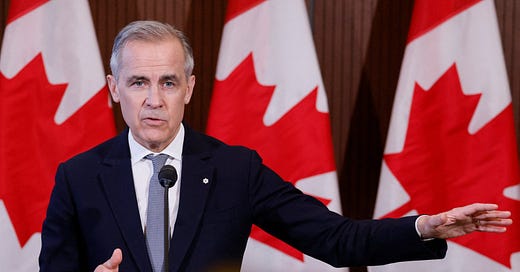Carney's triumph ushers in the return of political civility
Upon his entry into federal politics, Prime Minister Mark Carney has brought a maturity sorely missed in Ottawa for nearly a decade, resulting in the electorate rewarding him with a stronger mandate.
“No games, nothing like that. Straight.”
In his first press conference since being elected with a renewed mandate, Prime Minister Mark Carney immediately took the suspense out of whether he would make Conservative leader Pierre Poilievre wait up to six months for a byelection to regain his lost seat in Parliament, confirming instead he would call it as soon as an opening was made available to him.
It was a refreshing moment, to witness a prime minister not interested in operating for mere political posturing, but rather extending a magnanimous gesture, while demonstrating a seriousness and maturity of leadership Canada has needed for some time. Conversely, it would have been difficult to envisage Poilievre reaching out in this fashion had the roles been reversed, or frankly, Carney's predecessor Justin Trudeau acting similarly towards Poilievre given the same opportunity.
Such were the circumstances Canada had found itself in with respect to both Trudeau and Poilievre, an engagement between leaders marked by vitriol and pettiness. There was also a performative aspect to it all that only served to undermine the gravity of the issues plaguing our country.
Back to last Friday’s press conference, Carney exuded substance and precision in responding to questions, something the Ottawa Press Gallery, and Canadians by extension, have been starved from under the previous administration. Canadians had become so accustomed to the over-rehearsed script of non-answers by Trudeau, that Carney’s impressive presentation should not be confused with some newly discovered gold standard, but in fact a return to a baseline expectation we should have never allowed to deviate from us.
Carney’s presence in the political arena, along with his sharp focus on addressing the U.S trade war, had forced a more mature and decisive tone throughout the federal election campaign. Gone were the Conservative taglines of “Sneaky” or “Carbon Tax” Carney, as the election dynamics had suddenly pivoted on the need for the “adult in the room,” to deal with the bilateral crisis with the U.S..
To that end, Poilievre was compelled to change temperament in contrast with Carney, attempting to project more of a statesman-like figure to meet the moment in standing up to the Americans. But for someone who built his entire political career on the natural instinct to be pugilistic, Poilievre’s late-hour conversion of civility was never going to be an easy sell, nor was it entirely sincere, and a plurality of Canadians sensed it.
Yet, even the mercurial U.S President Donald Trump tempered himself in the midst of the election campaign, explicitly acknowledging Carney as ‘Prime Minister,’ and later referring to him as “a very nice gentlemen,” compared to the well-known distaste Trump had for Trudeau, whom he derisively labelled as “Governor.”
Following the election victory, Carney had extended calls to many disparate voices within the country, having spoken with Poilievre and Bloc Quebecois leader Yves-Francois Blanchet, likely to chart a path forward on a number of key priorities for the new parliamentary session, in a further sign of cooperation, collegiality, and respect.
Carney is also keenly aware of the regional cleavages within the federation, and has reached out to several provincial premiers, most notably Alberta Premier Danielle Smith.
Smith described her post-election call with Carney as a “positive first step” towards a possible resetting of the relationship between Ottawa and Alberta, as Carney recognized the need to increase opportunities for the energy-sector in a statement following the call. But more importantly, Carney has publicly acknowledged the need for unity overall, which is implicitly the number one priority for any prime minister of Canada.
All this to say, these are ample demonstrations of a leader who seemingly understands the importance of bringing people together with mutual respect and common purpose, irrespective of differences and predilections. For instance, Carney has since highlighted affordability and crime as among his top issues he intends to also focus on, which can be viewed as a subtle nod to the resonance these issues had with large segments of the electorate, who likely voted Conservative for those very reasons.
To cite another observation, TVO journalist and political author Steve Paikin, who had moderated the English language leadership debate, was struck by what he and many others saw after the debate, which was Carney shaking hands with Poilievre and conversing briefly with smiles on their faces. Paikin described this as “a moment that spoke well for Canadian democracy.” This was a clear break from the unbridled demonizations that had characterized the political landscape before Carney entered the scene. In other words, this was an illustration of leadership in fostering political civility.
As previously referenced in this newsletter, it was former NDP leader Ed Broadbent who believed that civility in our politics is only borne strictly from those who are in positions to lead, and Carney is certainly setting that example. As a result, Canadians have entrusted him to carry on with a fresh mandate, but it will ultimately be the measurable results that move beyond the rhetoric and civility, which will truly define Carney's effectiveness in governing during these turbulent times.





Well said Ang. 👏
👏👏👏